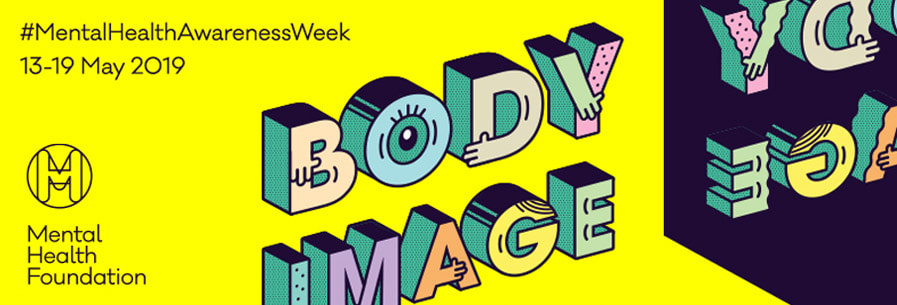|
1. It feels like we are now living in an “always on” world. What can we all do to help manage our work life balance?
In seeking to establish a balanced home and working life, two key words spring to mind and they are expectations and priorities. On a professional level the Contract, Job Description and Person Specification are good starting points. A comprehensive Induction Process that defines mutual expectations and boundaries within the role is an essential part of the process. Issues like working hours and priorities should be clearly understood and regular Appraisals are a good indicator of whether key objectives are being met in this area. But life is not all about work and our personal lives are equally important. Those two key words are just as important as we navigate our way through expectations and priorities in our relationships. I’m always keen to encourage people to consider prioritising time for themselves, their partner and their family. We all have 24 hours in a day, and it is important to ensure that we use them wisely. 2. What’s your best tip for time management at work? At the beginning of the working week it is so important to assess priorities for the week ahead. If you run a diary, plan it carefully and don’t forget to review it on a daily basis, things change, and this also applies to our priorities. If you don’t run a diary, maybe now is the time to start. If you don’t require a diary, think about ways in which the completion of tasks is being monitored and evaluated. And… in the middle of it all… don’t forget to take time to breathe. In other words, take a break! 3. If you are leading teams, how can you help staff understand how to be able to manage their time effectively? Children live what they learn; this is something I often find myself saying to parents of young children when they are desperately trying to do the right thing as parents. This saying translates equally well into the workplace: The best piece of advice I would offer a Team Leader is to model behaviour that you hope team members will want to emulate. On a practical level, a regular one to one meeting with staff members is a good way of discerning whether any issues are arising and may well allow for a conversation around how they might be best addressed. 4. Stress is a frequently used word. How can you identify if a colleague is stressed at work and what is your advice on how to support them. Identifying whether a colleague is stressed is not always easy, particularly if the individual does not acknowledge it, which is often the case. Common symptoms might include irritability, mood swings, anxiety, low energy and problems with concentration. Behavioural difficulties might include hostility or simply withdrawing from interacting with others. There may be physical symptoms too, including headaches, aches and pains and symptoms of panic, including breathing difficulties, chest pains and a sense of terror. They may fail to attend work, either because of repeated minor infections or because they might be struggling to function well emotionally. Performance may have dropped, and mistakes might be more common. Sensitivity is key in addressing the issues, especially if the colleague feels ashamed and struggling to acknowledge the difficulties. Colleagues would do well to check in with the individual, offering gentle support, emotionally and practically; expressing concern for their wellbeing without attempting to take control. Managers might want to complete a Stress Risk Assessment and this can be found at www.hse.gov.uk/stress/standards This allows for the opportunity to put in place a supportive plan, which can be reviewed periodically. If the organisation has access to an Employee Assistance Programme, make the individual aware of this, particularly as some short-term counselling may well address and resolve the issues. 5. What’s your favourite motivational quote and why? That’s a difficult question, when I have so many of them! The one that is my absolute favourite though goes like this: “The journey of a thousand miles begins with one small step”. (Lao Tzu) Life can be difficult and we can be overwhelmed by issues that crop up in all areas of our daily life. Taking a positive step back from those difficulties and breaking them down into manageable pieces is so important. We can’t control what happens in the future, but we can take control of what is happening today. Addressing issues we face today may well inform what happens in the future.
0 Comments
Mental Health Awareness Week 13-19th May 2019
Do you know, it thrills me when I see the various campaigns out there and especially when they are about raising awareness around mental health. It’s not before time that we are really engaging with the subject, especially as, believe it or not, it applies to our universal human condition. I was shocked, if not a little confused, to hear someone say: “I don’t have mental health”, when I was talking to them about this very subject. What the individual actually meant was that she didn’t have mental ill-health. Of course, as I was speaking to her in my professional capacity, it was my duty to correct her and reassure her that she did indeed have mental health; whether that had been compromised in some way was a matter for the assessment I was undertaking. It’s interesting, I think, that as soon as the word “mental” is used, some people automatically think that this is a slur on their character, even today, when we are so much better at communicating the importance of health generally. So, what I’m trying to communicate is that we all have a mental health, which is intrinsically linked to our physical and spiritual health. So, what we know is that if one area of our wellbeing has been compromised, then it is likely that another area will be compromised as a result. For example, break a leg and I may feel pretty fed up mentally as I’m prevented from going about my well organised and busy life. So what is mental health? Well, it is a state of being that affects how we think, feel and act. It is a state of well-being that enables us to live and work fruitfully within our various relationships and communities, enables us to maximise our full potential and helps us to cope with the normal stresses of everyday life. But, as human beings, our mental health fluctuates throughout our lives, just as our physical health does. Complex beings that we are means that we are often exposed to difficulties along the way that have the potential to challenge our coping mechanisms and leave us pretty isolated if we do not draw the support that we need. But, our capacity to draw that support will depend on a number of factors. As a counsellor, I’m fascinated by human behaviour and human development. I’m mindful that the way in which we function as adults is borne out of our formative experience. If our childhood experiences had not been supportive or affirming, then we may be less likely to reach out to others for support as adults. Fear of being ridiculed or labelled is often a stumbling block, especially among the men I see in my counselling room. I’m mindful too that cultural issues may also inform our capacity to draw support. Common features might include a “stiff upper lip” mentality that does allow for the expression of vulnerability. The shocking truth is that in 2017, 5,821 suicides were recorded in Great Britain. Of these, 75% were male and 25% were female. Suicide is the most common cause of death for men aged 20-49 years in England and Wales. Less extreme, it is estimated that 1 in 6 adults experiences a common mental health problem, such as anxiety or depression and 1 in 5 adults has considered taking their own life at some point. So I wonder, where are you in all of this? What was your early experience? How easy is it for you to open up about difficulties you are struggling to address? Well, if I only have one message, then it is this:
Best wishes, Jan It’s been a busy old time for me this past year. I’ve gone through the demanding process of moving house and into a brand new area. Establishing a new home, getting to know new people, reflecting on how I can make new friends and going out there and doing just that has been demanding indeed! I’ve also, with my life and business partner, set up a new project and, as many of you might be able to identify with, this can be both mentally and physically exhausting. I have worked hard in all areas of my life and, surprisingly, considering the business that I am in, I did not realise just how much my energy levels had become severely depleted.
Having had the opportunity to take some quality time out over the Christmas period has enabled me to step back and really take the opportunity to reflect on the impact of such a year. When we are caught up in the business of everyday life at home and at work, we often don’t see how life in all its fullness depletes us of our energy and has the potential to make us less effective in the things we have to do both personally and professionally. The opportunity to take time out, therefore, is essential for our wellbeing. Whether for a weekend or longer, taking a step back from our busy lives gives us the opportunity to recharge our batteries and so puts us in a better position to face our lives anew. Think about it, can we keep on bashing away at our laptop without occasionally plugging it in the mains socket? Well, of course not and the same is true for us. I have returned to my desk this brand new year with a renewed sense of energy. My mind is buzzing with ideas for the next stage of our project. My body longs to get outside and exercise... and I say this after having been stretched out on a sun lounger for the past couple of weeks, which is hardly surprising. Personally and professionally I feel that I can take on the world and achieve what I want to achieve. As I write this, I am mindful of the breaks for busy people that we are planning for this year and, if like me, you have felt the need for some R&R then give us a call to check out what is on offer for our weekend away ... go on, you are most certainly worth it! With very best wishes for a successful and productive 2019. Jan |
BlogJR Corporate Health blogs cover topics such as management support, supervision, psychological support, critical incident support and wellbeing in the workplace. Archives
July 2021
Categories
All
|
JR Corporate HealthConnectt |
Services |
Legal Info |
© Copyright 2023 JR Corporate Health Limited | JR Corporate Health Limited is registered in England, number 11264109, and whose registered office is Bow Cottage, Selworthy Green, Selworthy, Minehead, Somerset TA24 8TP.
Email [email protected] Mobile 07785 977771
Website Design & Development by Creative Remedy
Email [email protected] Mobile 07785 977771
Website Design & Development by Creative Remedy




 RSS Feed
RSS Feed